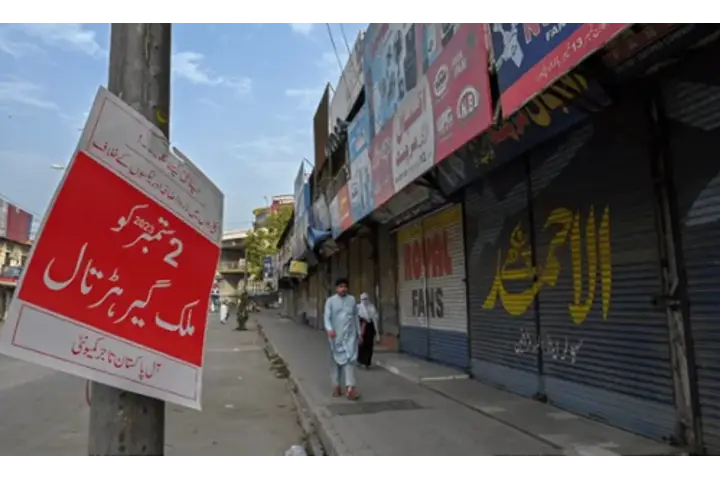

Pakistan's economic crisis is deepening (Image courtesy: IANS)
Incidents of crime have been steadily increasing in Pakistan, hit by unprecedented economic crises. While newspapers in Pakistan recently reported how the crime rate surged in Lahore, the problem is not restricted to the second largest city in the country. Almost all cities in Pakistan have witnessed an exponential rise in the crime rate. This is directly linked to the steady deterioration in the state of economy leading to increased joblessness and erosion of income levels.
Though Pakistan has never featured among the countries with highest crime rates, the surge in the number of cases in the last few years has alarmed citizens.
Cases of theft, burglary and murders have been continuously rising across Pakistan.
Last week, Lahore reported a record of 550 crime incidents in just a span of 24 hours.
Though the police said that the increase in crime rate is due to the deteriorating economic situation, citizens have blamed the police for “negligence and incompetence,” local newspaper Dawn said.
However, rise in crime and instability often have a direct link with the economy. A World Bank report revealed that about 40 per cent of Pakistan’s population now live below the poverty line.
A large number of Pakistanis are eating just one meal a day with surging food prices. In September Pakistan’s annual inflation rate stood at 31.4 per cent year on year. In August, the inflation rate was 27.4 per cent. The surge in prices has led to shutting down of several businesses. Many have had to trim their operations.
According to the World Population Review, Venezuela, Papua New Guinea, South Africa and Afghanistan rank among the countries with the highest crime index. Venezuela, as per World Population Review, has the highest crime rate at 83.76, measured per 100,000 citizens.
Pakistan has a crime index of 42.8.
“Though the official crime index in Pakistan is much lower than several other countries, the huge rise in incidents has become a cause for concern for citizens and the expatriate community,” a Pakistan citizen living outside the country told India Narrative.
The International Monetary Fund (IMF) in a blog noted that broadly, policies that promote more jobs and higher productivity—such as better infrastructure, lower barriers to entry for new firms, and more-efficient tax systems—are key to strengthening and sustaining growth in the region.
With the economic crises in Pakistan likely to continue, the country could be staring at a full blown humanitarian crisis.
Also read: Can Nawaz Sharif’s return turn around Pakistan’s free-fall economy?
New Zealand's Deputy Prime Minister and Foreign Minister Winston Peters has arrived Kathmandu on his…
The Indian Army and the Mongolian Armed Forces will commence the 17th edition of their…
Pandi Ram Mandavi, a renowned artist from Bastar, Chhattisgarh, was conferred the Padma Shri award…
Taiwan's Mainland Affairs Council (MAC) criticised China on Wednesday for organising two summits for Taiwanese…
The East Turkistan Government in Exile (ETGE) vehemently denounces Mr. Francesco Frangialli, the Honorary Secretary-General…
Chairman John Moolenaar and Ranking Member Raja Krishnamoorthi of the House Select Committee on the…